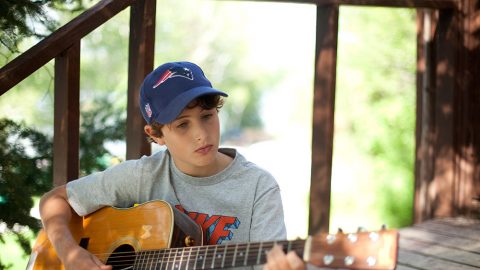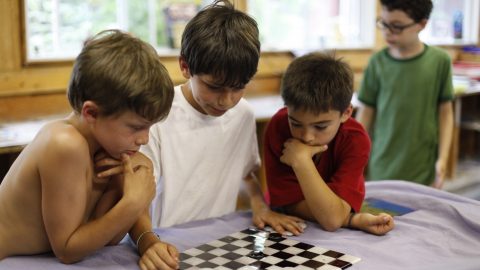Building Resiliency
Resiliency is the buzzword right now. It’s on the lips of every parenting expert penning a column, and every school speaker giving a lecture. And it makes sense. In this age of helicopter parenting, when we do more and more for our kids and they do less and less themselves, a little more resiliency can go a long way. But what exactly is resiliency?
Put simply, it’s the way in which children respond to life’s challenges. Do they persevere or do they crumble? Do they call out for Dad or do they go it alone?
Building resiliency at camp
While camp has endless moments of fun and excitement, when children live with ten to twelve people without their parents’ comfort it can be a little challenging. Yet these challenges are as important to the growth and development of your child as the friendships they form and the skills they build. When a child has to figure out how to solve an argument with a friend or overcome their fear of canoe trips, they’re building resiliency.
But how exactly do children build resiliency at camp? For one, they learn to face risks directly. While there’s no physical danger, climbing sixty feet in the air to leap from a high ropes element can be pretty terrifying. But even amidst that fear and apprehension, campers draw on the support of their friends and counsellors and find a way to push through.
The camp environment also helps build skills that cultivate a feeling of confidence and competence. It’s one thing to hear “I’m proud of you” from your mom, but it’s another thing entirely to get up for skis on the first time or make something beautiful in the wood shop. A confident and competent child is a resilient child.
Finally, camp is a great environment in which to build emotional resilience. If you didn’t get that part in Annie you wanted, but your bunkmate did, how do you deal with that? Can you be disappointed, but also happy for a friend? It’s not an easy process to navigate, but in a community of close friends and cabin counsellors, it is a great way to learn how to accept and deal with what you’re feeling.
Of course, these are just a handful of examples. We see these things happen all the time at camp. What matters in these situations is how the campers respond to the problem. And usually, if they’re at camp, they learn how to respond well, and they grow from those experiences to become more confident and resilient.
How can I build on those skills at home?
Listen
One of the most effective ways to instil resilience in your child is to really listen. Try to see things from your child’s perspective. Resist the urge to judge or try to fix things. If you really listen you’ll be able to reflect back to them how they’re feeling and in turn show them that their feelings are real and valid, a major step forward in building resiliency.
Allow them to fall
When your son forgets his homework at school, don’t drive back two hours later to pick it up. If your daughter isn’t being played as much as the other girls on the hockey team, don’t call the coach to complain. If you solve your kids’ problems for them, they’ll never be able to do it themselves. Instead, try to ask your son or daughter what they think would be the best way to deal with the problem or situation. Support them by supporting their decisions, and encouraging independence.
Teaching your child that they can rely on themselves and deal with what life throws at them is the greatest gift you can give them.





